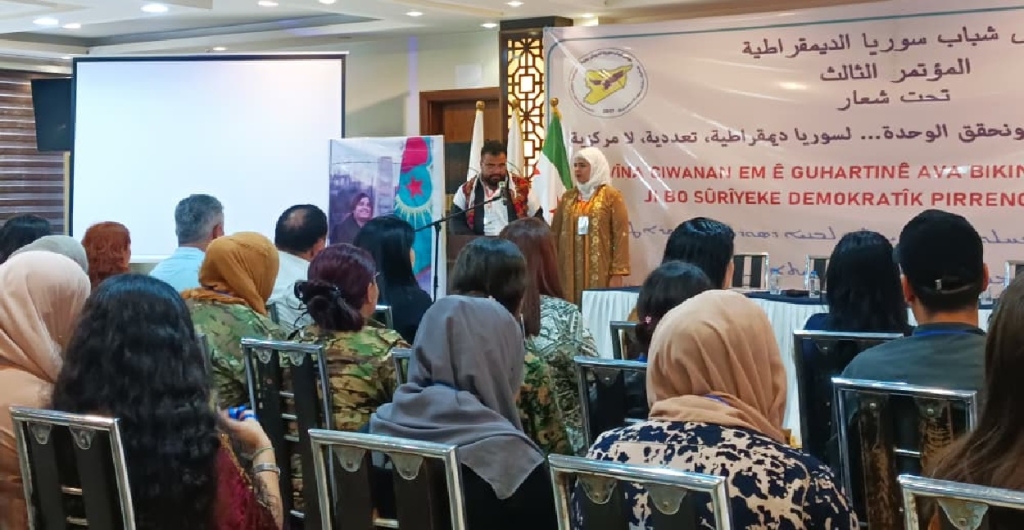Raqqa Hosts Third Congress of Syria’s Democratic Youth
RAQQA, North and East Syria — With banners reading “Through the will of youth, we create change and achieve unity … for a democratic, pluralistic, decentralized Syria,” hundreds of young activists, civil society leaders, and representatives of Syria’s diverse communities gathered in Raqqa this week for the Third Congress of Syria’s Democratic Youth.
The meeting drew Syriac (Assyrian-Aramean-Chaldean) parties, representatives of the Democratic Autonomous Administration of the Region of North and East Syria (DAARNES), Circassian organizations, and independent intellectual and political figures. Organizers framed the gathering as more than a youth assembly: it was, they said, a declaration that Syria’s younger generations must take ownership of the country’s fractured future.
Opening remarks stressed the heavy price youth have paid since the outbreak of war in 2011. Disproportionately affected by displacement, unemployment, and violence, young Syrians were described as the only force capable of bridging the divides of ideology, sect, and ethnicity that continue to plague the nation.
Participants pointed to the experience of North and East Syria’s experiment in grassroots democracy as a model. They called for the creation of organized youth platforms that can push for political participation, cultural dialogue, and resistance to extremism. In interviews, Syriac leaders highlighted the importance of their presence. Subhi Malke, head of the Syriac Youth Union in Hasakah, told SyriacPress that the congress provides a critical opportunity: “Our voice as Syriac (Aramean–Assyrian–Chaldean) youth must be heard. Through this council, we can fight for the goals of our people and ensure our community is represented in Syria’s future.”
Debates touched on national unity, the separation of religion and state, youth participation in decision-making, and the role of social justice in reconstruction. The final report underscored the need to build a cohesive youth network across Syria, both inside and abroad, while creating economic opportunities that could anchor young people to their communities instead of forcing them into exile.
A recurring theme was the empowerment of young women. Delegates insisted that women’s freedom and leadership be guaranteed through the Women’s Coordination, an organizational body intended to serve as a political reference point for female members.
The congress also adopted a new internal charter for the Youth Council, envisioning it as an inclusive forum for Syrians of every background. Among its guiding principles were democracy, the rejection of authoritarianism and patriarchal systems, the fight against ethnic and religious chauvinism, and the promotion of an “ethical, political society.”
In the closing statement, participants reaffirmed their commitment to Syria’s territorial and political unity — a state neutral in terms of ethnicity and religion, governed by a democratic constitution that guarantees rights and freedoms. They called for the institutionalization of co-presidency at all levels, describing it as a safeguard for pluralism and equality.
“The struggle against authoritarian mindsets, capitalist modernity, and all forms of occupation and genocide must continue,” the statement read. “Only then can we build a democratic, just Syria.”
For many, the congress marked more than policy resolutions. It was an act of defiance against despair, and a reminder that Syria’s youth see themselves not as bystanders to history, but as its authors.


















